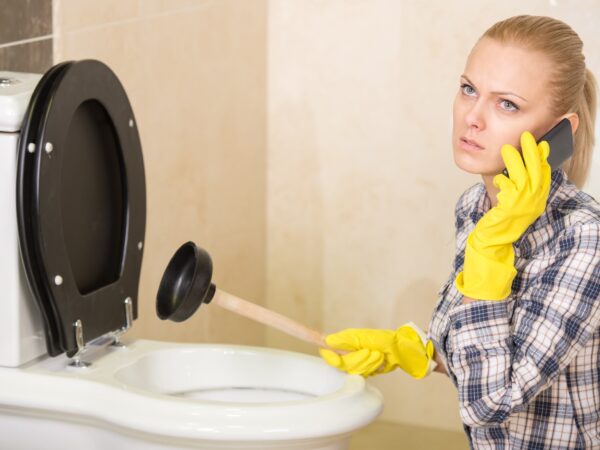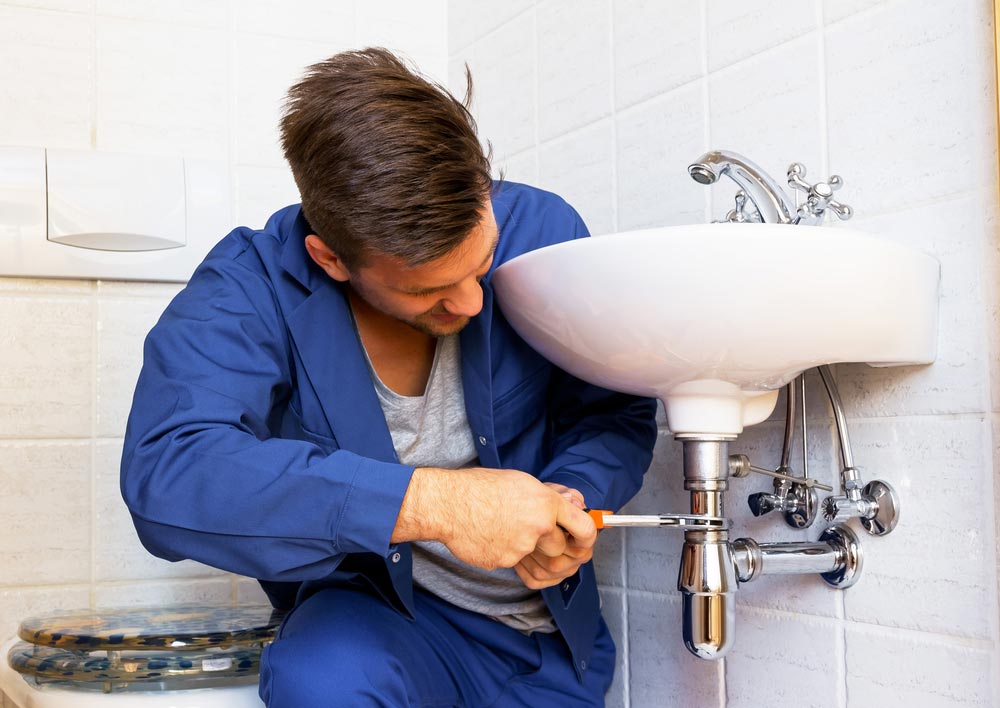Critical Plumbing Solutions: Actions to Follow Until A Plumber Arrives
Critical Plumbing Solutions: Actions to Follow Until A Plumber Arrives
Blog Article
They are making a number of great points on Expert Tips for Emergency Plumbing Repairs overall in the content in the next paragraphs.

Plumbing emergency situations can strike at any moment, creating stress and possible damage to your home. Whether it's a ruptured pipeline, a clogged drainpipe, or a leaky tap, understanding just how to manage the scenario until a specialist plumbing gets here can save you from additional complications. This article supplies essential emergency pipes tips to assist you minimize damage and restore control throughout a pipes crisis.
Shut off the Water
The first step in any plumbing emergency is to turn off the water. For localized problems, such as a leaking faucet or commode, turn off the valve near the component. When it comes to a major leakage or ruptured pipe, find your home's main water shut-off shutoff and turn it off promptly. Knowing the place of these shutoffs beforehand can save useful time throughout an emergency situation.
Address Small Leakages with Short-term Solutions
Small leaks can swiftly come to be significant issues if left untreated. Make use of these temporary repairs till expert aid gets here:
While these fixes aren't permanent, they can help reduce water loss and damages.
Unclog Drains Pipes Securely
A clogged up drainpipe can be a frustrating and messy issue. Here's how to tackle it:
If these methods do not work, prevent using too much pressure, as it may worsen the blockage.
Take Care Of Overflowing Toilets
An overruning toilet can create prompt mayhem. Here's what you need to do:
Shut Off Your Hot Water Heater
In specific emergencies, such as a ruptured pipeline, it's a good idea to shut off your hot water heater. This stops overheating or damages to the system when water stops moving. Shut off the power supply to the water heater (electrical or gas) and let it cool down to stay clear of prospective hazards.
Momentarily Stop a Ruptured Pipeline
A burst pipeline can result in significant water damages in minutes. To minimize the problem:
Call an expert plumbing professional promptly to address the issue permanently.
Manage Frozen Pipes Very Carefully
In cooler climates, icy pipes are a common emergency situation. If you believe a frozen pipe:
Prevent Additional Damages
Taking fast action to reduce damages can conserve you money and time in the long run. Here's exactly how:
. Have an Emergency Situation Plumbing Set
Prepare a standard pipes emergency kit to deal with small concerns properly. Your kit should consist of:
Having these devices handy can make a considerable distinction in your capability to handle emergencies.
Know When to Call an Expert.
While quick fixes can assist temporarily, certain plumbing issues require prompt specialist focus. Call a plumbing professional if:.
Immediately getting in touch with a professional makes certain the concern is fixed properly and prevents more difficulties.
Final thought.
Plumbing emergency situations can be frustrating, however with the right expertise and devices, you can handle the situation properly up until help gets here. By switching off the supply of water, addressing tiny leakages, and using short-lived repairs, you can reduce damages and keep your home safe. Remember, these pointers are momentary options; always speak with a qualified plumbing technician to deal with the root cause of the trouble. Prep work and quick reasoning are your ideal allies in any type of plumbing emergency.
8 Helpful Tips for Managing Plumbing Emergencies at Home
If your plumbing system hasn’t failed once, wait for it because almost everyone has a story to tell. Sometimes, it could be simple emergencies such as a leaking pipe, a blocked cistern, or even a big burst pipe. In situations like this, you need to have some handy tips to save you some money and from possible damages.
Take care of minor issues early.
Sometimes, you could have avoided an emergency by taking proactive measures while it was still early. Some major plumbing emergencies can be a result of an ignored minor issue. We recommend that you have items like plumbing tapes and other related items. A plumbing tape can allow you to manage minor leaks before the plumber arrives.
Cut off the water supply.
This tip is essential in almost any type of leakage problem. For problems like minor leakages in the toilet or kitchen, turn off the supply that takes water to the affected pipes. If the leakage is a major pipe, you must shut off the supply valve to the entire building. This will help you avoid flooding your home and neighbors if you share a flat.
Know your plumbing system
Folks typically move into a new apartment without understanding the water supply around the building. This can prove disastrous if a water emergency arises and the plumber is far away. The previous tip will prove useless if you don’t practice this one. More importantly, know where your water shut-off valve is located – you’ll need that knowledge to prevent potential home floods.
Have some common handy tools
There are lots of plumbing emergencies that you can handle without hiring a plumber. That’s why you must keep some tools available always. Some tools that you can use to fix simple plumbing emergencies easily include plumbing tapes, screwdrivers, thread seal tapes, plungers, pliers, tape measures, and rubber gloves.
Insulate your pipes from cold
You’ll save yourself from many plumbing expenses if you protect your water pipes from the cold. This is because of the harmful effects that cold weather can have on your pipes. During winter, your pipes can burst from being overly expected to freezing temperatures. So, make sure insulators are there to keep the pipes working correctly.
Avoid practices that will clog your toilet.
Many people indulge in practices that can damage the plumbing system of the entire building. One of these is when they use their toilet to dispose-off garbage. They flush all kinds of things, such as paper towels, bandages, hairs, female sanitary products, etc., down the toilet. This will block your toilet in the long run, incurring unnecessary expenditures. Dump such waste in the trash instead.
Check your dials regularly.
Sometimes, there could be leakages in your home without noticing them in time. So, constantly monitor your water meter dial. If the dial is reading when there is nobody using water, this is an indicator that there is leaking. Check for leaks immediately. Call a plumber as soon as possible if you can’t find any.
https://www.constructionplacements.com/8-helpful-tips-for-managing-plumbing-emergencies-at-home/

Hopefully you liked our piece about Plumbing Emergencies: Tips on What To Do Before. Thank you for spending some time to browse our blog post. Are you aware of another individual who is fascinated about Plumbing Emergencies: Tips on What To Do Before? Feel free to promote it. Thanks for going through it.
Free Estimates Report this page